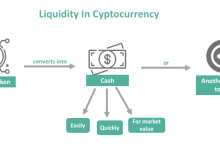Latest Crypto News: BTC at $126K, Vanguard Eyes ETFs, SEC Reviews Stocks

The crypto space never slows down. Each week, fresh news moves the markets and fuels new discussions. Some updates thrill investors. Others spark doubts. That’s why and bring you a clear, simple recap. No fluff. Just the highlights that matter most. It’s quick to read, easy to follow, and keeps you on top of the latest trends. Ready to stay informed without the noise? Let’s get started.

BTC , reaching $126,210 on Coinbase this Monday. The move follows one of the strongest weeks for U.S. spot . Data shows these funds collected nearly 27,800 BTC in just seven days. Friday marked the most intense buying, with over 8,000 BTC entering ETFs in a single day.
. Momentum is building, but one factor still worries traders: long-term holders cashing out. Since July, blockchain analytics firms estimate that between 350,000 and 400,000 BTC have been sold by early investors. That wave of supply could slow further gains if it continues.
Despite the selling, many analysts believe the market has enough demand to keep climbing. ETF inflows show institutions remain hungry for exposure. If this trend holds, the pressure from supply could be absorbed quickly.
Some traders are already comparing this to earlier bull cycles. Strong ETF demand, combined with BTC’s scarcity, might set the stage for another push higher. Whether this is only a pause before bigger gains, or the top of the market, will become clear in the coming weeks.
Layer-2 network Starknet : BTC staking is now live on its platform. The system lets BTC holders earn rewards while keeping full control of their coins. This marks the first time can be staked on a trustless Layer-2 network.
The rollout includes support for wrapped BTC assets such as WBTC, tBTC, Liquid BTC, and SolvBTC. These tokens can now participate in Starknet’s consensus alongside STRK. Security is reinforced through zk-STARK cryptography, a method resistant to future quantum threats.
At the same time, the Starknet Foundation unveiled a fund of 100 million STRK, valued at about $12 million. The program will boost activity across the BTCFi ecosystem, encouraging lending, borrowing, and collateral strategies based on BTC.
Eli Ben-Sasson, co-founder of StarkWare, said the project delivers on a long-standing promise to expand what users can do with BTC. He described it as a moment where advanced cryptography meets BTC’s original vision.
Additionally, Re7 Capital plans to launch a yield product on Starknet, paying returns directly in BTC. The fund will combine trading strategies, open finance opportunities, and staking rewards, opening access to both retail and institutional investors.
Choose StealthEX for .
- User-Friendly — Simple and minimalistic interface for everyone.
- Fast and Private — .
- .
- are available for limitless, quick and easy marketplaces.
- — Buy digital currency up to $700 without KYC!
- — Process crypto swaps at the best rates wherever you are.
- 24/7 Customer Support.
Earn from Each marketplace by Joining .
Become a partner right now and use affiliate tools:
- — Earn from your wallet, aggregator, or marketplace terminal.
- — Recommend StealthEX to your audience.
- — Built crypto marketplace widget on any page of your website.
- — A perfect choice for traffic monetization.
- — Track conversion and stats right in the personal cabinet.
Samsung with Coinbase to bring crypto services directly to its Galaxy smartphones. The deal gives 75 million users in the United States instant access through the native Samsung Wallet app. A global rollout is also in progress.
Users can buy digital assets inside the app and access Coinbase One, a premium subscription normally costing $4.99 to $29.99 per month. The service offers fee-free staking, higher reward payouts, and additional account security. For now, U.S. Galaxy owners will receive it at no extra cost.
Coinbase executives said the collaboration combines Samsung’s global reach with the marketplace’s established reputation. They believe it will open crypto markets to millions of first-time users. Samsung confirmed future expansion beyond the United States, which could eventually reach its one billion global customers.
Samsung Wallet began as Samsung Pay in 2015, but it has evolved into a multi-function platform. It now supports crypto storage, peer-to-peer transfers, identity verification, and digital payments. By adding Coinbase integration, Samsung is reinforcing its role as a gateway to digital finance.
CME Group, the largest U.S. derivatives marketplace, nonstop trading for crypto futures and options by 2026. Pending regulatory approval, its CME Globex platform will allow clients to trade digital assets around the clock.
The marketplace said it would only pause operations for a two-hour maintenance window each weekend. transfers completed on weekends or holidays will still settle on the following business day, ensuring clearing and compliance remain consistent.
Tim McCourt, head of alternative products at CME, explained that client demand has grown for continuous trading. Crypto markets never close, and traders need ways to manage risk every day. CME believes offering regulated, 24/7 access will meet that demand while maintaining institutional safeguards.
The move follows record activity across CME’s crypto division. In the third quarter of 2025, the platform Mediand 340,000 crypto contracts daily, equal to $14 billion in value. Open interest also hit a record $39 billion, while ETH futures and micro contracts reached new highs.
If successful, the plan could reduce reliance on offshore platforms and attract more institutional players to U.S.-regulated markets. It shows CME’s ambition to secure a leading role in digital asset derivatives.
Sui Group Holdings, the company behind the blockchain, in partnership with Ethena Labs and the Sui Foundation. The tokens, named suiUSDe and USDi, were unveiled during Token2049.
SuiUSDe will be a yield-bearing stablecoin, offering holders returns from reserves. USDi, in contrast, will not generate yield but will be backed one-to-one by assets in the BlackRock USD Institutional Digital Liquidity Fund. Both tokens are designed to expand liquidity and strengthen the Sui ecosystem.
Chairman Marius Barnett said suiUSDe represents the first step in building a treasury-style infrastructure, likening it to the foundation of a “Sui Bank.” He emphasized that income from reserves will be reinvested in SUI tokens, driving Rise across the network.
USDi will rely on BlackRock’s fund, which invests in short-term U.S. government securities. This will give token holders a safe and transparent option while leveraging blockchain efficiency.
Ethena Labs, creator of the third-largest stablecoin USDe, will provide the technical framework. Its Whitelabel program allows blockchains like Sui to issue custom stable assets with minimal friction.
The dual launch allocations Sui to compete more directly with established stablecoins like USDT and USDC.
Vanguard, the world’s second-largest asset manager, . The decision would mark a major reversal from its earlier skepticism.
Vanguard manages more than $11 trillion in assets and has over 50 million investors. Currently, its clients cannot trade BTC or offered by other firms. If approved, that could soon change. While Vanguard does not plan to issue its own ETFs, it may list third-party funds in response to customer demand and clearer regulations.
The firm had long opposed crypto. In 2024, it called digital assets immature, lacking economic value, and potentially harmful to portfolios. Previous executives, including founder Jack Bogle, advised avoiding BTC entirely.
But new leadership appears more open. CEO Salim Ramji, a former BlackRock executive, has shown strong interest in blockchain innovation. Analysts believe his appointment signals a shift in strategy.
Market experts say Vanguard’s entry could channel billions into . Spot BTC and ETH ETFs have already drawn more than $142 billion, with BlackRock leading the market. If Vanguard participates, the inflows could accelerate further adoption across traditional finance.
Tether to its reserves, purchasing 8,888 BTC worth over $1 billion at the end of September. The transfer was flagged by Arkham Intelligence and confirms Tether’s strategy of using company profits to accumulate the asset.
This is the second major acquisition of the year. In March, Tether made a similar billion-dollar purchase. With the latest move, the company now holds 86,335 BTC valued around $9.75 billion. That makes Tether one of the largest individual holders of BTC.
The company’s Median purchase price is estimated at $48,542, giving it more than $5 billion in unrealized profits. Analysts note that the wallet has grown steadily since Tether announced its BTC reserve plan in 2023, which commits 15% of profits to buying BTC.
With a market cap above $115 billion, Tether dominates the stablecoin industry. Its balance sheet includes U.S. Treasuries and billions in excess reserves, reinforcing its financial strength.
Industry experts suggest Tether could become one of the most profitable companies globally. Some believe it might even surpass oil giant Saudi Aramco if adoption of continues in emerging markets.
Andre Cronje , Flying Tulip, and it is already attracting big money. The new on-chain marketplace secured $200 million in a private funding round and will soon open a public token sale at the same valuation.
Flying Tulip aims to create a complete trading system built entirely on-chain. It will combine a native stablecoin, spot and derivatives markets, money markets, and on-chain insurance. Cronje said linking all of these features with cross-margin will make capital more efficient for traders.
The FT token launch will include a unique redemption right. Buyers can burn tokens at any time to recover their original contribution, giving downside protection. The team itself will not receive tokens at launch, relying instead on future buybacks from revenue.
Tokens will remain non-transferable until after the sale to limit speculation. Details about supported assets and smart contract addresses will be published to ensure security.
Backers include major names such as Brevan Howard Digital, CoinFund, and DWF. Cronje said the project’s goal is to deliver institutional-grade infrastructure with full on-chain guarantees. The platform plans to raise up to $1 billion through its private and public phases.
Japanese financial giant SBI Group at its mining subsidiary, SBI Crypto. Hackers drained $21 million worth of assets from the company’s mining pool in late September.
Blockchain investigator ZachXBT flagged suspicious transfers involving , , , , and . The stolen funds were routed through instant marketplaces before being laundered via , a platform sanctioned by U.S. authorities.
Analysts believe the hack bears the hallmarks of the Lazarus Group, a North Korean state-backed team linked to numerous crypto thefts. Similar techniques, including rapid mixing and use of decentralized privacy tools, have been used in past exploits.
SBI has not yet confirmed the breach publicly. However, the company has expanded heavily into crypto in recent years, offering ETFs and tokenized products, which may have increased exposure to security threats.
The incident highlights growing risks for mining pools, which manage large sums and are connected to many participants. This makes them attractive targets for hackers.
If the Lazarus Group is indeed behind the attack, it adds to billions already attributed to North Korean cybercrime, underscoring persistent challenges for global regulators and marketplaces.
The U.S. Securities and marketplace Commission to let blockchain-based versions of public company shares trade on approved crypto marketplaces.
The idea would allow investors to buy and sell stock tokens that represent real ownership in listed firms. Each transfer would be recorded directly on blockchain systems instead of going through traditional clearing houses. Supporters say this could lower costs and expand access for retail traders.
Reports suggest marketplaces like Nasdaq, Coinbase, Robinhood, and Kraken are all exploring tokenized equity products. Some have already launched pilot versions overseas. SEC chair Paul Atkins has described tokenization as a positive innovation and urged regulators to encourage its development.
However, the plan faces resistance. Citadel Securities warned that regulators must ensure tokenized securities deliver real benefits rather than exploit loopholes. The firm emphasized that efficiency and transparency should be the key goals.
Interest is still growing. BlackRock recently launched a tokenization unit, and several projects in Europe and Asia have already tested real-time settlement of digital shares. If the SEC approves, tokenized stocks could become a new bridge between traditional markets and blockchain finance in the U.S.
This article is not supposed to provide financial advice. Digital assets are risky. Be sure to do your own research and consult your financial advisor before investing.
The post first appeared on .







